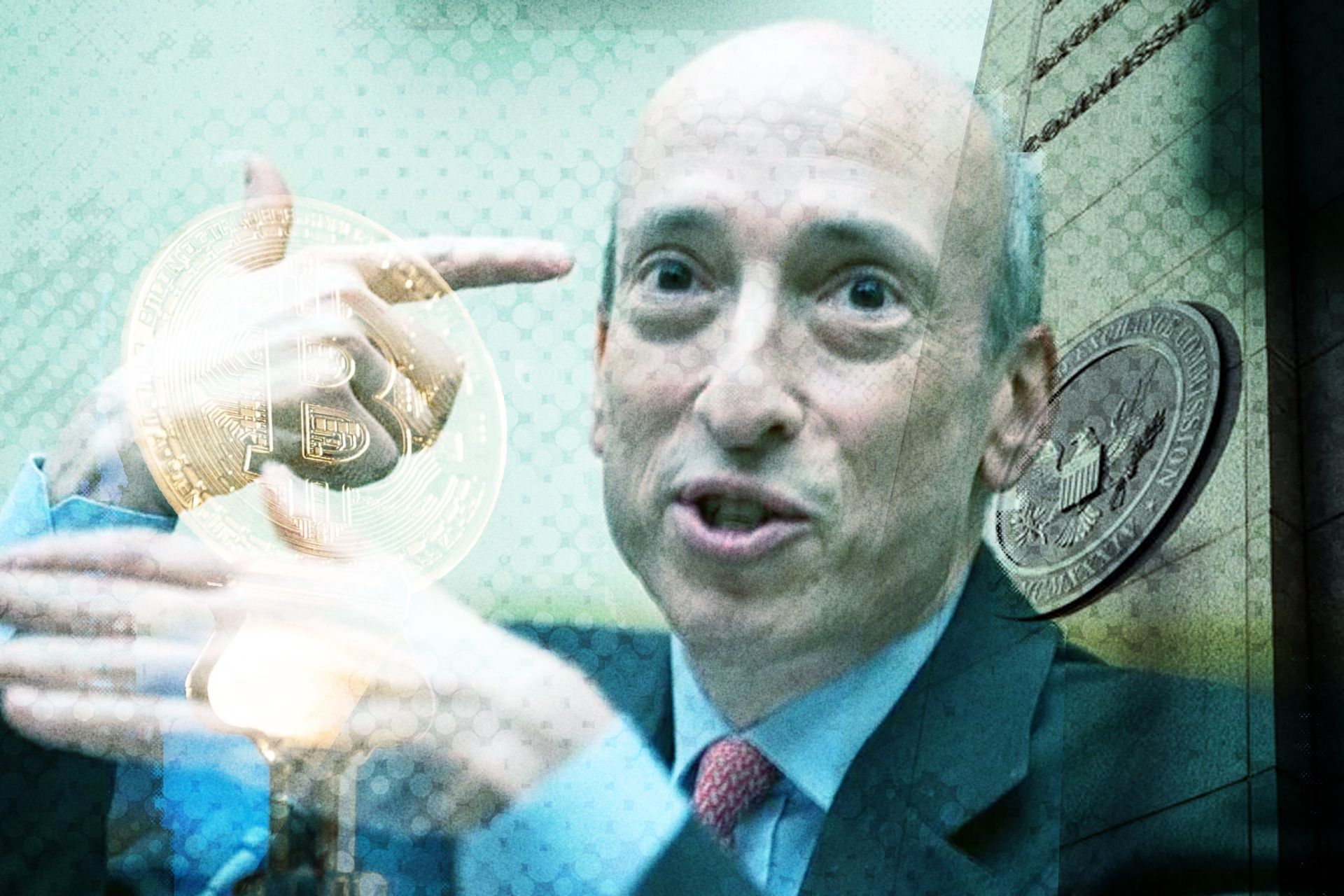
Spot bitcoin ETF approval imminent?
The U.S. Securities and Exchange Commission (SEC) is on the cusp of a potentially game-changing decision for the crypto market. Bloomberg ETF analysts James Seyffart and Eric Balchunas have highlighted a potential window, between now and November 17, during which the SEC may greenlight some of the pending spot bitcoin exchange-traded fund (ETF) applications.
Among the applications under SEC consideration are those from prominent financial institutions, including BlackRock, Bitwise, VanEck, WisdomTree, Invesco, Fidelity, and Valkyrie.
Seyffart and Balchunas estimate a 90% probability of ETF approval before January 10. However, they suggested that the SEC could issue decisions on up to nine of the twelve applications before this deadline. Analysts further speculate that approved spot bitcoin ETFs could attract between $50 billion to $100 billion in inflows over five years, significantly impacting Bitcoin's market dynamics.
Delay orders were issued by the SEC for BlackRock, Bitwise, VanEck, WisdomTree, Invesco, Fidelity & Valkyrie at the same time. If the agency wants to allow all 12 filers to launch -- as we believe -- this is the first available window since Grayscale's court victory was affirmed pic.twitter.com/v5GkbP5IUj
— James Seyffart (@JSeyff) November 8, 2023
The anticipated approval of these spot bitcoin ETFs is perceived as a regulatory endorsement and a significant catalyst that could drive wider market acceptance and stimulate growth in crypto investments. The prevailing market sentiment is a blend of eager anticipation and measured optimism.
Investors and industry experts alike are keenly awaiting what many believe could be a watershed moment in the evolution of cryptocurrency, potentially marking its transition into a more widely accepted and mainstream financial asset.
Optimism after Grayscale win
A key focus is on the Grayscale application to convert its existing GBTC trust into a spot bitcoin ETF. This application gained particular importance following Grayscale's recent legal success against the SEC, which has intensified industry discussions about the approval prospects for crypto ETFs in general.
Grayscale, part of the Digital Currency Group, has had a longstanding relationship with the SEC, primarily due to its existing Grayscale Bitcoin Trust. However, the SEC initially denied its bid to launch an ETF carrying direct crypto assets, leading to the recent legal battle.
Grayscale's victory on August 29, when a court labeled the SEC's initial rejection as "arbitrary and capricious," has intensified the asset manager's discussions with the regulator. Since then, Grayscale has been engaging with the SEC's Division of Trading and Markets and the Division of Corporation Finance, to negotiate the details of its application, according to Chief Legal Officer Craig Salm.
U.S. Representative calls Gensler "Ineffective and Incompetent"
Although the SEC has remained silent on the ongoing discussions, the actions and comments of Chair Gary Gensler have been closely analyzed for indications of a possible shift in the regulator's perspective on cryptocurrencies. The results of these negotiations are critical, carrying significant weight for the market's future. They are poised to influence regulatory acceptance and potentially pave the way for digital assets to become a more established part of mainstream investment portfolios.
Gensler recently indicated his openness to the possibility of reviving the bankrupt cryptocurrency exchange FTX, under the condition of strict legal compliance. His comments at the D.C. FinTech Week conference were a response to news that Tom Farley, former New York Stock Exchange president and current CEO of Bullish, might acquire the exchange, previously led by the now-convicted Sam Bankman-Fried. Gensler advised the prospective new leaders of FTX to focus on building investor trust, ensuring proper disclosures, and avoiding conflicts of interest, such as trading against customers or misusing their crypto assets.
Meanwhile, Minnesota Representative Tom Emmer has criticized the SEC during a Congress session, calling Gensler "ineffective" and "incompetent." Emmer's remarks coincided with Gensler's statements at the conference.
.@GaryGensler is as ineffective as he is incompetent. Fortunately, my nonpartisan appropriations amendment to reign in SEC enforcement abuses against the digital asset industry passed the House today with no opposition.
— Tom Emmer (@GOPMajorityWhip) November 8, 2023
Congress will hold unelected bureaucrats accountable. pic.twitter.com/TGaaW8I0Eu
Emmer accused the SEC under Gensler's leadership of engaging in "regulation by enforcement," particularly targeting the digital asset industry. Emmer introduced an amendment to curtail the SEC's enforcement powers over digital asset transactions, pending clear legislative guidance. This amendment prohibits the SEC from using funds for enforcement actions related to digital asset transactions until Congress defines the SEC's jurisdiction over this asset class. Emmer argued that the SEC, under Gensler, had pursued numerous enforcement actions against the industry without establishing clear regulations. Emmer stressed the need for clear guidance, criticizing Gensler for focusing on high-profile cases like that of Kim Kardashian while overlooking issues like the FTX scandal.
Last week, the SEC leader also faced criticism as a 2019 video resurfaced, revealing his past critique of the agency's inconsistent approach to crypto regulation, in particular spot bitcoin ETFs. Captured at the MIT Bitcoin Expo, Gensler, in conversation with SEC Commissioner Hester Peirce, highlighted the contradiction in approving bitcoin and ether futures products while rejecting spot bitcoin ETFs. He emphasized the similarity in laws governing these assets, underscoring a significant shift in his stance since taking the helm at the SEC.
 Observing moneytech and cryptoMathilde Adam
Observing moneytech and cryptoMathilde Adam

